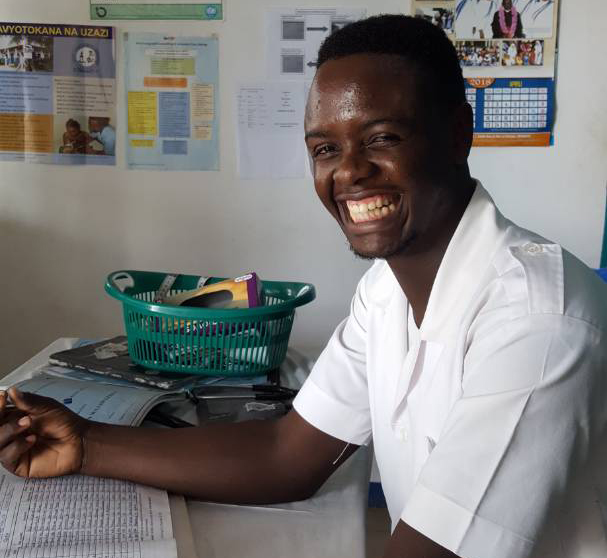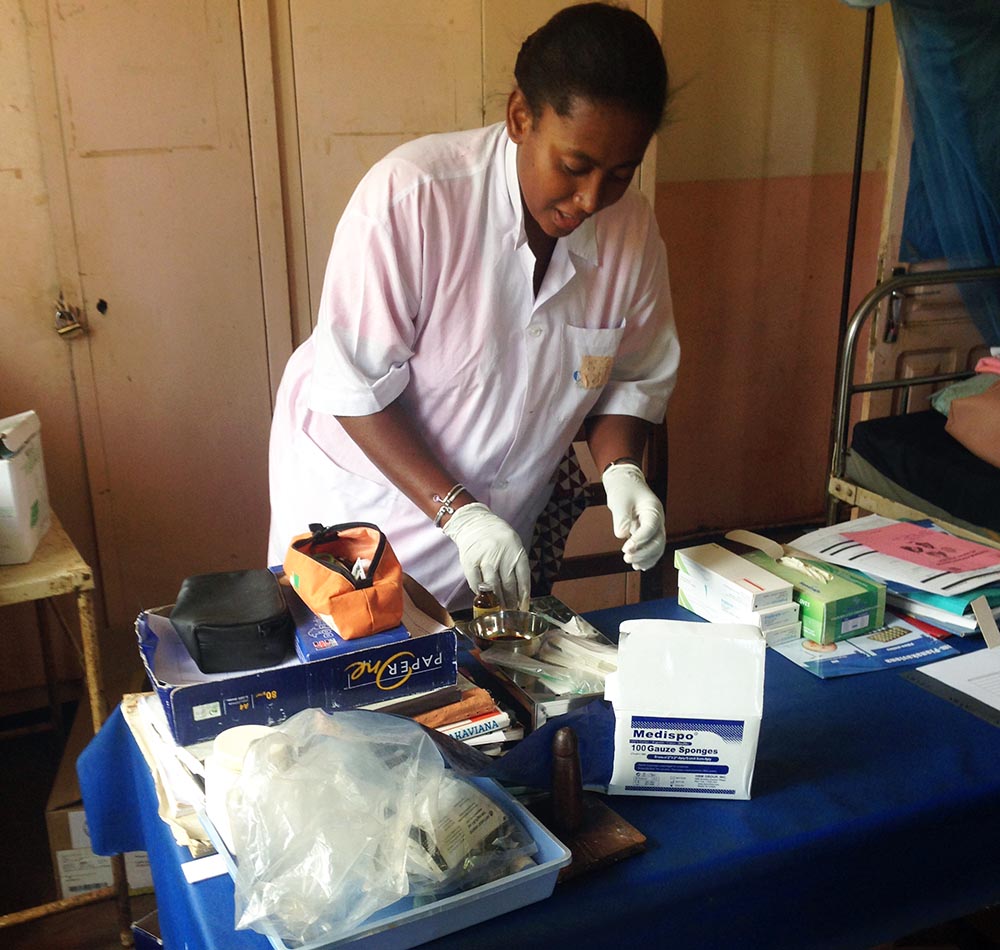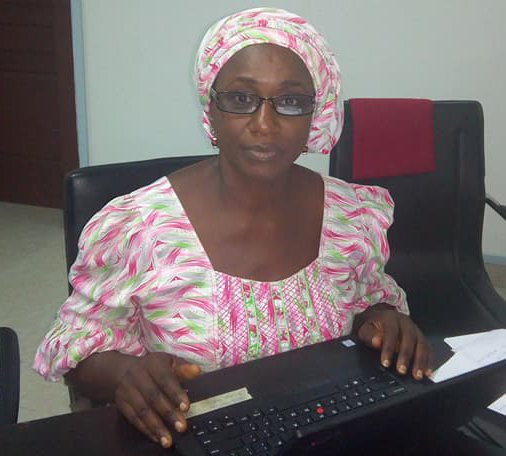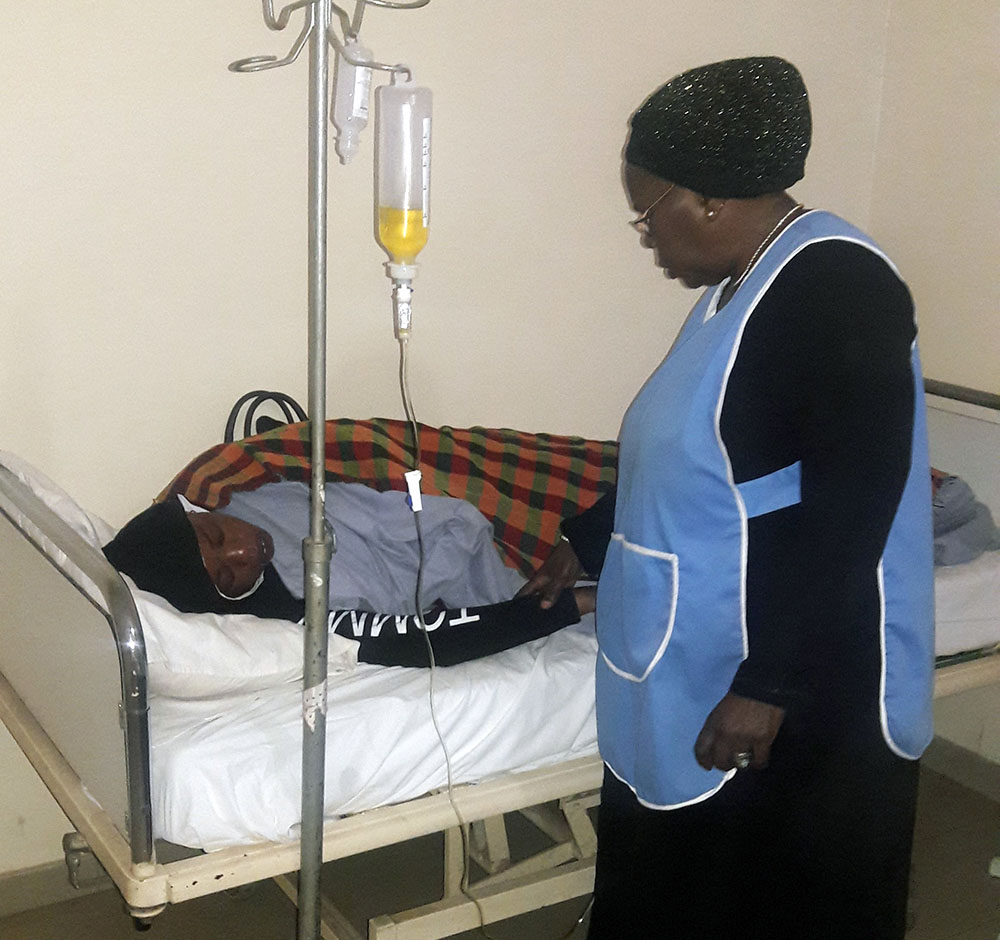Leading the way with quality care: Celebrating midwives around the world
Midwives are a critical source of quality care for mothers and babies around the world. They are on the frontline serving those who need it most. The skills and services they provide often mean the difference between life and death. Supporting midwives is key to their success, whether it be through clinical, financial, or on-the-job training.
Meet four midwives who are increasing access to quality services as a result of SHOPS Plus training.

Preventing mother-to-child transmission in Tanzania
Isaya Bruno is a nurse midwife at Kalita Maternity Home, a private clinic in Tanzania. Driven by his passion and commitment to helping people in his village and community, his calling came from a traumatic experience that shaped his life and led him into a line of work that has him breaking the mold in his community. It started the night a pregnant woman in his village lost her baby after giving birth in an environment that he could only describe as “not friendly.”
“In the middle of the night, we heard screams and cries and the whole village gathered at the scene,” he recalls. “When we got there, we found that she had already given birth and lost a lot of blood… Even though there were so many of us there, none of us could help because we did not have the necessary skills to help her.”
Bruno’s vivid recollection of that night continues to drive him today as a midwife at the clinic.
Through a recent training he received thanks to SHOPS Plus linking him to a local organization that offered him a comprehensive two-week course on prevention of mother-to-child transmission (PMTCT) Option B+, Kalita through Bruno can now offer the full spectrum of antenatal, HIV, and PMTCT care to pregnant women who visit the clinic instead or referring them to other establishments. Read his full story.
Delivering services in the northern region of Madagascar

Noro Abdou Abdallah is a 29-year-old midwife from Nosy Be, a small island off the northwest coast of Madagascar. She chose to pursue a career as a midwife so that she could be financially independent and not burden her parents.
Abdallah works as midwife on the SHOPS Plus project as part of the mobile outreach team in the Diana region in the north of the country. Alongside a doctor and a driver, she travels around the region inserting implants and intrauterine devices (IUDs) for the most disadvantaged women located in rural settings. For 20 days every month, she travels across the region and is far from her family and her friends, helping women to avoid early or unwanted pregnancies.
In addition to her work with IUDs and implants, Abdallah offers counselling to women and is known to be excellent at listening to the women, engaging them in important discussions and giving them the advice they seek. Abdallah’s work is difficult and requires a lot of emotional and physical strength but she says “Seeing 20-year-olds with three children or 15-year-olds with a child, really hurts my heart. I really want this project to continue as long as possible so that we can help them.” Learn more about our work in Madagascar.

Ensuring quality training for midwives and health workers in Nigeria
Paulina Akanet is a midwife and a quality improvement specialist for SHOPS Plus in Nigeria. Born and raised in Nigeria, Akanet was one of three girls living in a household and compound that included her immediate family as well as her uncles and grandparents. Her journey to becoming a midwife was not out of choice but of family necessity.
“We were three girls that were in our final year in high school,” she said. “Our fathers met and decided that one of us should train as a health worker so that once anyone within the family circle gets sick, someone will know what to do. The vote fell on me.”
Although reluctant at first, when the time came Akanet fought for a spot in a program being filled by the Ministry of Health. Now after 35 years of working as a midwife, she is grateful to her parents and can't imagine doing anything else.
“The most important lesson I learnt all through my midwifery experience is that my skills, or lack of them, affects the quality of care and outcome of every delivery, and the mother and/or her baby suffer the consequences for my lack of knowledge and mistakes.”
Akanet shares her valuable experience and knowledge as a midwife and understands the needs of the midwives and other health workers providing services to the people who need it most. This simple lesson has driven her to stay on top of her education and, in her new role at SHOPS Plus, she is determined to ensure that every health worker in SHOPS Plus-supported facilities acquires the knowledge and skills required to practice their profession. This will be done through a variety of methods, including clinical training, supportive supervision, on-the-job coaching, and mentorships. Learn more about our work in Nigeria.
Providing skills to ensure the financial sustainability of midwives in Senegal

Bineta Sène Sall is a midwife in Senegal that has served her community for years. When flood waters damaged her clinic in 2013, she had to move her practice to a rented facility in Petit Mbao, Senegal. As a midwife and owner of the Al Noor Clinic, she had focused her attention on her clients but when disaster hit, she was not financially prepared to withstand both moving and maintaining her client services. As a result, she had to cut back on her services.
Through a SHOPS Plus training on financial management, Sall has been able to organize and better manage the finances of her clinic, which reduced costs significantly and increased the facility’s savings. Now, after her training, Sall is seeing the fruits of her labor.
“I am in the process of reacquiring the building that I used to have that has been on standby for a longtime thanks to my savings,” Sall says with a smile on her face. “Therefore, I now have hope for the future.” Learn how SHOPS Plus helped Sall get back on her feet.